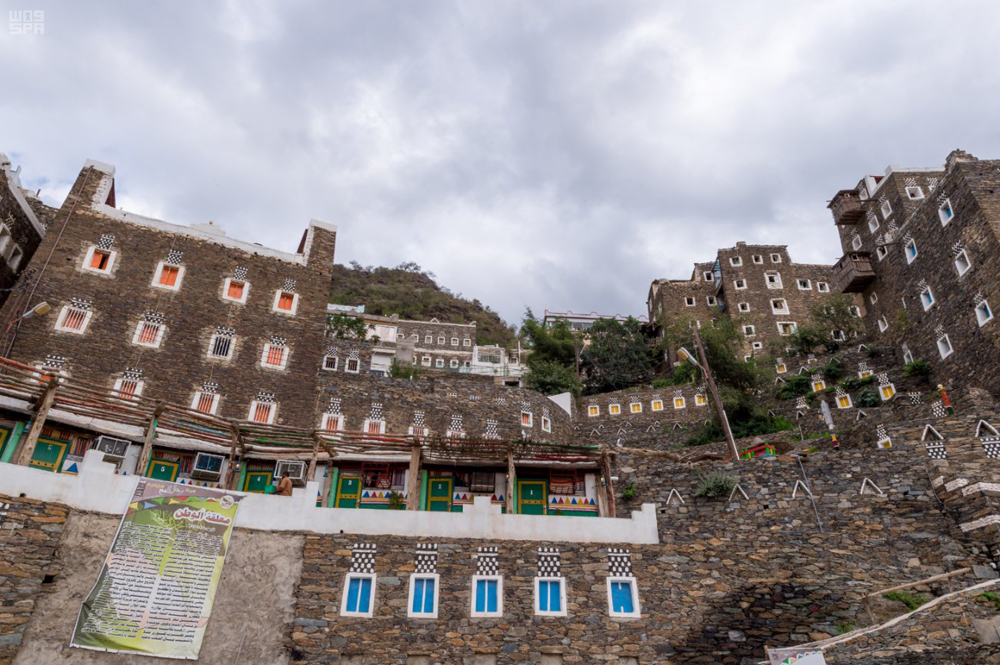RIYADH: Organizers of a major Saudi initiative aimed at boosting tourism through a nationwide program of festivals are to launch two simultaneous seasons of events for August.
The Saudi Commission for Tourism and National Heritage (SCTH) announced it would run the Taif and Al-Soudah seasons in the Asir region in tandem next month.
The ambitious 2019 Saudi Seasons initiative, the first of its kind in the region, was launched in February and includes 11 tourist seasons covering most of the Kingdom.
Linked to the Saudi Vision 2030 reform plan, the project is aimed at highlighting the diverse cultural, historical, artistic and natural attractions of the Kingdom in a bid to further promote the country as a domestic and international tourist destination.
Not only are the Saudi Seasons designed to increase tourist spending in the Kingdom, they also aim to provide thousands of temporary and permanent jobs in the sector while encouraging investment opportunities.
HIGHLIGHTS
• The SCTH announces it would run the Taif and Al-Soudah seasons in the Asir region in tandem next month.
• The project will further promote the country as a domestic and international tourist destination.
• The aim of Taif Season is to consolidate its stature as a top Arab destination by putting the area’s rich history and culture under the spotlight with a range of family entertainment and tourist events, organizers say.
• Other attractions will include the famous Souk Okaz Festival, with its literary, cultural, and artistic events, and popular poetry competition, as well as the Arab market which will be hosting several Middle Eastern countries for the first time.
SCTH officials said events being lined up for the Taif and Al-Soudah seasons were part of coordinated efforts between the public and private sectors.
The aim of Taif Season was to consolidate its stature as a top Arab destination by putting the area’s rich history and culture under the spotlight with a range of family entertainment and tourist events, organizers said. Taif’s mild climate during summer would also be an added bonus.
Other attractions will include the famous Souk Okaz Festival, with its literary, cultural, and artistic events, and popular poetry competition, as well as the Arab market which will be hosting several Middle Eastern countries for the first time.
The “Crown of the Camels” festival, celebrating traditional Arab civilization, will also form part of Taif Season, along with activities and events such as hiking, a rose and fruit festival, street art and theater plays.
Meanwhile, the area of Al-Soudah boasts natural beauty, ranging from forests to highlands, and unique heritage and cultural treasures.

SCTH officials say that events being lined up for the Taif and Al-Soudah seasons are part of coordinated efforts between the public and private sectors. (SPA)
Adventure activities
Various aeronautical and adventure sports activities, such as parachute jumping, will be taking place, in addition to artistic, lyrical and entertainment events.
Director of Taif Season, Noura Al-Akil, said: “We aim to grant Taif its natural title as an Arab resort, through these activities, by highlighting the historical heritage and remarkable cultural and artistic diversity, while also providing diverse activities that meet the aspirations of Saudi families, residents, guests and tourists.
“The concerted action among the public and private sectors and the community has been remarkable. The participation of Arab countries is providing an exceptional experience for visitors this year, to help re-establish Taif as the first tourist destination in the Kingdom,” she added.
Al-Soudah Season’s director, Hossam Al-Din bin Saleh Al-Madani, said: “The Al-Soudah Season comes within the framework and interest of the Kingdom’s wise leadership, by supporting the domestic tourism sector, entertainment and culture, raising the quality of life for citizens, and building a vibrant society, because of the important touristic components that characterize the Kingdom.”
He pointed out that the events calendar would be based on the area’s key features of nature, scenery, heritage, culture, adventure, sports and climate.
Al-Madani said the program would include a series of cultural, sporting and entertainment events, concerts, musical evenings, artistic and heritage shows, as well as quality new services in Al-Soudah parks, international luxury restaurants, and tours of the city and Abha.
The season’s events would put to the test improved infrastructure and services in Al-Soudah, added Al-Madani.
Taif and Al-Soudah seasons have their own dedicated social media accounts, in addition to the Saudi Seasons website. Details about upcoming events during the two festival periods will be revealed on the website over the coming days.





























